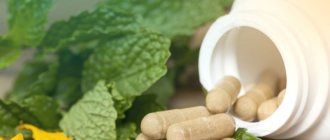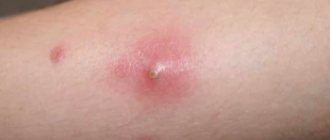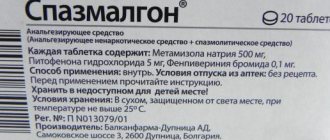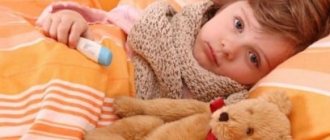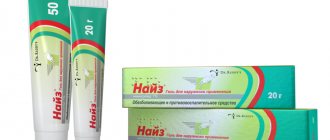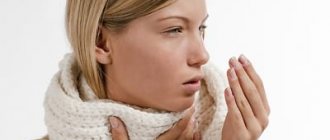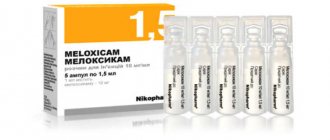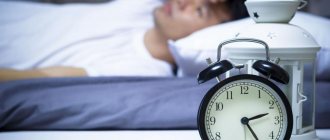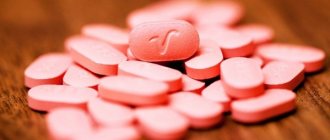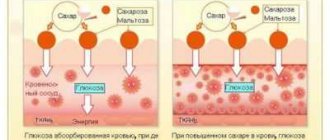Some people are prone to depression. This usually occurs due to a receptive nervous system. A person takes all situations to heart, passes them through himself. The cause of depression can be the presence of psychological trauma, experiencing difficult life situations, overwork and chronic fatigue, serious illnesses, and loneliness. Depression is usually accompanied by a pessimistic outlook on life, indifference to what is happening, lack of appetite, refusal of communication and activity. Often, antidepressants are prescribed to eliminate symptoms of depression, persistent migraines and panic attacks. We will tell you in our article what medications there are and how to take them correctly.
How the drugs work
One of the reasons for the manifestation of depressive states is a decrease in the concentration of serotonin in the brain . This important neurotransmitter, hormone is called the hormone of happiness, joy, pleasure. Moreover, its normal concentration provides a long-lasting, stable feeling of quiet happiness and harmony.
A serotonin reuptake inhibitor works to increase the concentration of the hormone serotonin in the brain . The active ingredients of this antidepressant selectively block (inhibit) serotonin in the brain. This process occurs directly at the synapse. That is, the reuptake of the hormone by the adhesive does not occur; this process is prevented by the drug.
Serotonin remains in place, so the circulation of nerve impulses continues. They activate cells that are suppressed by depression , softening its manifestation. The advantage of drugs in this group is that the dosage is immediately determined by the attending physician; there is no need to increase it, since the additional therapeutic effect does not depend on it.
When using a group of inhibitors, there is no point in monitoring the concentration of serotonin in the blood. An exception may be some diseases of patients, due to which the elimination of drugs from the body slows down.
How to avoid negative consequences
Most antidepressants are available strictly with a doctor's prescription. The exception is the lighter representatives of this group. This allows you to avoid uncontrolled use of drugs. The doctor selects a specific drug and its dosage depending on the patient’s diagnosis, taking into account the presence of concomitant pathology.
In order to avoid withdrawal syndrome, it is necessary to stop taking the drugs according to a specially selected regimen, slowly reducing the dosage. This allows you to gradually reduce the patient’s dependence on drugs.
You should take medications strictly according to the instructions given by your doctor. Self-medication means increasing the risk of side effects.
There's something for everyone
Antidepressants are most often not cheap, we have compiled a list of the most inexpensive of them in ascending order of price, with the cheapest drugs at the beginning and the more expensive ones at the end:
- The most famous antidepressant is also the cheapest (maybe that’s why it’s so popular) Fluoxetine 10 mg 20 capsules – 35 rubles;
- Amitriptyline 25 mg 50 tablets – 51 rubles;
- Pyrazidol 25 mg 50 tablets – 160 rubles;
- Azafen 25 mg 50 tablets – 204 rubles;
- Deprim 60 mg 30 tablets – 219 rubles;
- Paroxetine 20 mg 30 tablets – 358 rubles;
- Melipramine 25 mg 50 tablets – 361 rubles;
- Adepress 20 mg 30 tablets – 551 rubles;
- Velaxin 37.5 mg 28 tablets – 680 rubles;
- Paxil 20 mg 30 tablets – 725 rubles;
- Rexetine 20 mg 30 tablets – 781 rubles;
- Velaxin 75 mg 28 tablets – 880 rubles;
- Stimuloton 50 mg 30 tablets - 897 rubles;
- Tsipramil 20 mg 15 tablets – 899 rubles;
- Venlaxor 75 mg 30 tablets - 901 rub.
How antidepressants help with depression
Informburo.kz asked a girl who went through depression and an eating disorder to tell her story. She shared how she faced the problem, underwent treatment, and then gave up antidepressants and returned to normal life again. We are publishing her story on condition of anonymity.
“My mother left me when I was one year old. I rarely saw her; I was raised by my grandmother. Since childhood, I felt useless and was afraid that I would be abandoned. And this is what happened when I was dating a guy: one day he simply didn’t show up for a date, stopped answering calls - I couldn’t contact him anymore. I didn’t know the reason, I didn’t understand what was happening. Then I came up with a reason myself: I’m fat. By the way, then I weighed 48 kg with a height of 164 cm. I became a vegetarian, ate twice a day, periodically fasted and trained in the gym until I sweated. I was annoyed by the feeling of fullness, and I forbade myself everything. After that, compulsive overeating began: I ate so much that it hurt to breathe, and I hated myself even more. My periods became irregular and then stopped altogether. I got scared and ran to the gynecologist. She asked me about my diet and I said I eat normally. I was really convinced that I was eating normally, but I was overeating because I was weak-willed.
The gynecologist prescribed hormonal hormones. My periods started, but when I stopped taking the pills, they stopped again. That’s when I graduated from university and stopped receiving a scholarship. Stress, uncertainty and lack of work plunged me into panic: now I had no money for the gym, and I could get fat. Already then the depression began. One day I covered all the mirrors in the house so that only my face was visible. I couldn't see myself and my body. I hated them.
She worked. Then my grandmother died. It was hard, and I continued to fast and train. There was no longer any talk about menstruation, but I didn’t care anymore.
So 4 years passed - and all this time I did not suspect that I had an eating disorder. One day, a friend had the same symptoms, and her mother bought her antidepressants. I Googled these pills and came across the term “bulimia nervosa” - it exactly matched my condition. At first I wanted to take antidepressants myself, but I couldn’t find ones that could be sold without a prescription. Then I decided to contact a psychotherapist so that he could prescribe them for me. By that time, I no longer wanted to live; it became difficult to get up in the morning. I was so disgusted with myself that I wanted to scratch my face and cut my body.
The psychotherapist was not in favor of prescribing me medications, but I insisted. I was prescribed a small dose: I took a quarter of the tablet. At the same time, she underwent psychotherapy with him and a psychologist. The effect of the pills was almost immediate: anxiety and self-hatred disappeared, and the desire to live appeared. My period has started. After 7 sessions, I quit both therapy and pills - I suddenly realized that there was my inner work that no one would do for me. There were no side effects or withdrawal syndrome: at some point I simply began to forget to take the pills.
I quit my job and started working remotely. I remembered what I always loved – drawing. I entered the second higher education degree in design. When I found myself and started doing what I liked, the problems with food stopped, and skipping workouts stopped scaring me. I didn't train all winter because I was studying and working. Now I go to the gym, but only because I like it. I don’t restrict myself in food, and the breakdowns have stopped. Yes, I have an imperfect body, and now I weigh 57 kg. But all this doesn’t matter: I finally started living. I still have work to do on myself: jokes about weight and posts about losing weight act as a trigger and cause anxiety attacks. I can't say that I'm completely healthy. But I learned to love myself and listen to my body.”
Classification of antidepressants according to the principle of action on the body
There are several options for classifying antidepressants. One of them is based on exactly what clinical effect the drugs have on the nervous system. There are three types of such actions:
- Sedative
- Balanced
- Activating
Sedative antidepressants have a calming effect on the psyche, relieving anxiety and increasing the activity of nervous processes. Activating drugs fight well against such manifestations of depression as apathy and lethargy. Balanced drugs have a universal effect. As a rule, the sedative or stimulating effect of drugs begins to be felt from the very beginning of administration.
Interaction with other drugs
Antidepressants can interact with other medications, even those that seem absolutely safe and familiar to us. The most active in this regard are tricyclic thymoanaleptics and monoamine oxidase inhibitors, but drugs from the SSRI and SSRI groups practically do not interact with other medications. In any case, if your doctor prescribes you any medications against depression, be sure to find out whether you can combine them with the use of other medications, dietary supplements, and even teas and herbal decoctions.
Herbal antidepressants without a doctor's prescription
Effective herbal over-the-counter antidepressants are sold in large quantities at pharmacies. They are able to quite effectively cope with anxiety and depression that arise against the background of stress and anxiety.
- Infusions of lemongrass, maralia root, rhodiola rosea, and immortelle relieve fatigue. They should be taken 150 grams before meals.
- Leuzea extract in alcohol - increases performance and stimulates human psychomotor functions.
- Ginseng tincture exhibits strong immunostimulating properties. It increases the body's resistance to stress and treats depression. A side effect of its use is sensitivity to the sun. Do not visit solariums if you are taking ginseng tincture.
- Zamanikha - improves sleep and activates performance.
- Red clover, blue honeysuckle, oregano and motherwort. Infusions of these herbs help treat depression.
- Oregano, chamomile, dill and cumin are used in folk medicine to relieve seasonal depression.
- Valerian, peppermint, hops are excellent herbal antidepressants.
- Hawthorn has a calming effect
- Angelica officinalis is a good treatment for insomnia.
- Calendula – effectively relieves stress and fatigue.
Medicine "Flucosetine"
This drug is one of the first representatives of the SSRI group; it combines both antidepressant and stimulant effects. The medicine "Fluxen", also known as the antidepressant "Fluoxetine", helps reduce anxiety and tension, eliminates feelings of fear and improves mood. Its most effective use, according to practicing psychotherapists, is in cases of asthenic depressive disorders with apathy, as well as depression of varying severity and obsessive states. This medicine is also used in the treatment of bulimia. The antidepressant Fluoxetine was first registered in 1974 in the USA, and in the last decade it has become a top seller in the UK, only under a different trade name - Prozac. In Russia, this medicine is widely used, and many practicing doctors confirm that they prescribe it or its generics to patients for various depressive conditions.
Natural Treatments for Depression
1. Cognitive Behavioral Therapy (CBT) - Cognitive behavioral therapy aims to help people change the way they think about things. Unlike more traditional forms of therapy, it focuses on problems and difficulties in the here and now.
Numerous clinical studies around the world have consistently demonstrated that cognitive behavioral therapy is as effective as antidepressants. After 20 individual therapy sessions, approximately 75% of patients experience a significant reduction in symptoms.
Subscribe to our INSTAGRAM account!
2. St. John's wort - St. John's wort (Hypericum perforatum) is commonly used to treat depression. It is available in tablets, capsules and liquid form in supermarkets and health food stores. Research shows that it has antidepressant effects by inhibiting the reuptake of the neurotransmitters serotonin, norepinephrine and dopamine.
Numerous double-blind, placebo-controlled studies have examined the effectiveness of St. John's wort for treating mild to moderate-severe depression, and most have found the herb to be more effective than placebo. It may be at least as effective as paroxetine (Paxil) in treating moderate to severe depression in the short term.
3. S-Adenosylmethionine (SAMe) - SAMe is an amino acid derivative that occurs naturally in all cells. It plays a role in many biological reactions by transferring its methyl group to DNA, proteins, phospholipids and biogenic amines. Several scientific studies suggest that SAMe may be helpful in treating depression.
4. Light Therapy - For many years, light therapy has been used to treat seasonal affective disorder, a type of depression caused by short winter days and prolonged darkness. Lack of sunlight is responsible for the secretion of the hormonal melatonin, which can cause a sad mood and a lethargic state.
Light therapy helps regulate the body's internal clock in the same way that sunlight does. Light therapy is an effective treatment for seasonal affective disorder and may also reduce symptoms of non-seasonal depression.
5. Exercise - Researchers have found that regular exercise and increased physical activity, which changes serotonin levels in the brain, lead to improved mood and feelings of well-being.
Study after study shows that exercise promotes mental health and reduces symptoms of depression. The antidepressant effects obtained from regular exercise are comparable to strong antidepressants such as sertraline.
6. 5-Hydroxytryptophan (5-HTP) - 5-Hydroxytryptophan (5-HTP) and tryptophan are also natural alternatives to traditional antidepressants. When your body begins to produce serotonin, it first produces 5-HTP. 5-HTP as a supplement may increase serotonin levels. Evidence suggests that 5-HTP and tryptophan are better than placebo for relieving depression.
7. Massage – One of the most well-known benefits of massage is its ability to increase feelings of well-being. Massage produces chemical changes in the brain that lead to relaxation and calm.
It also reduces stress hormone levels. Massage therapy reduces levels of the stress hormone cortisol by an average of 30 percent. Massage also increases serotonin and dopamine, neurotransmitters that help reduce depression.
8. Acupuncture - Acupuncture is a traditional Chinese treatment in which needles are inserted into specific points on the body. Research shows that acupuncture can reduce or eliminate symptoms of depression. A review of 8 controlled studies supported the theory that acupuncture can significantly reduce the severity of depression.
9. Meditation - Meditation is an ancient system of relaxation, exercise and healing with origins in Indian philosophy. Some positions are effective in stimulating the release of endorphins and reducing levels of the stress hormone cortisol.
10. B Vitamins - B vitamins play a role in the production of certain neurotransmitters that are important for regulating mood and other brain functions. Folic acid deficiency occurs in people with depression.
Vitamin B6 or pyridoxine is a cofactor for the enzymes that convert L-tryptophan into serotonin, so vitamin B6 deficiency can lead to depression. And there is some evidence that people with depression respond better to treatment if they have higher levels of vitamin B12.
Side effects
All antidepressants have side effects. Some people show them, some don't. The most common is problems with weight gain. Another negative effect, found in 40% of respondents, is a decrease in sexual desire. In third place is drowsiness and a general decrease in activity, since most of these drugs have a sedative effect. Less common but still common include: nausea, vomiting, headaches, headaches, trembling limbs and dry mouth. Because of all these symptoms, people abandon treatment. Symptoms often go away within 1-2 weeks of starting medication.
Antidepressants and tranquilizers: difference between groups
In addition to antidepressants, tranquilizers are also used in the treatment of depression:
- This group of drugs eliminates feelings of fear, emotional stress and anxiety.
- At the same time, the medications do not impair memory and thinking.
- Additionally, tranquilizers can prevent and relieve seizures, relax muscles, and normalize the functioning of the autonomic nervous system.
- In medium doses, tranquilizers lower blood pressure, normalize heart rate and blood circulation in the brain.
Thus, tranquilizers mainly differ from antidepressants by their opposite effect on the autonomic nervous system. Also, tranquilizers have the greatest effect on fear and anxiety, which can be eliminated even with a single dose, while antidepressants require a course of treatment. Tranquilizers are more likely to cause addiction and their withdrawal symptoms are more pronounced and severe.
The main side effect of the group is addiction. Drowsiness, muscle weakness, prolonged reaction time, unsteadiness of gait, hand tremors, speech impediments, urinary incontinence, and weakened libido may also develop. In case of overdose, paralysis of the respiratory center and respiratory arrest may develop.
If tranquilizers are abruptly discontinued after taking them for a long time, a withdrawal syndrome may develop, manifested by sweating, tremors of the limbs, dizziness, sleep disturbances, intestinal dysfunction, headache, drowsiness, increased sensitivity to sounds and smells, tinnitus, disturbances in the perception of reality, and depression.
| Benzodiazepine derivatives | Heterocyclic drugs |
They remove all types of anxiety and are effective for sleep disorders, panic attacks, fears, and obsessive states.
| These are new tranquilizers. The most popular is buspirone, which combines the properties of a tranquilizer and an antidepressant. The mechanism of its action is based on the normalization of serotonin transmission. Buspirone perfectly calms, neutralizes anxiety, and has an anticonvulsant effect. Does not cause lethargy and weakness, does not impair memory, memorization and thinking. Can be combined with alcohol and is not addictive.
|
| Triazolebenzodiazepine drugs | Glycerol analogues – Equanil (Meprobomate) Diphenylmethane analogues – Hydroxyzine (Atarax), Benactizine (Amizil) |
Used for depression in combination with anxiety:
|
Efficiency
The latest generation of antidepressants are used not only to treat depression, but also for other diseases, both in adults and children:
- agitation,
- obsessive-compulsive disorders (OCD),
- childhood enuresis or urinary incontinence,
- depression and major depressive disorder,
- generalized anxiety disorder,
- bipolar disorder,
- post-traumatic stress disorder (PTSD),
- social anxiety disorder.
It may take several weeks for the patient to begin to notice the effect of a new generation antidepressant prescribed by a psychiatrist. Many patients refuse to take the drug because they believe the medicine is not working.
Reasons why a patient may not see improvement include:
- the drug is not suitable for a particular person,
- the need for additional treatment methods,
- There is no strict control over drug intake.
At the Yusupov Hospital, each patient can receive qualified assistance from a psychiatrist; the selection of treatment and dosage of the drug is carried out individually for each patient in accordance with the diagnosis.
It is important that the patient clearly understands the timeliness of taking the drug for effective treatment. And to get the desired result, 1-2 weeks are not enough.
